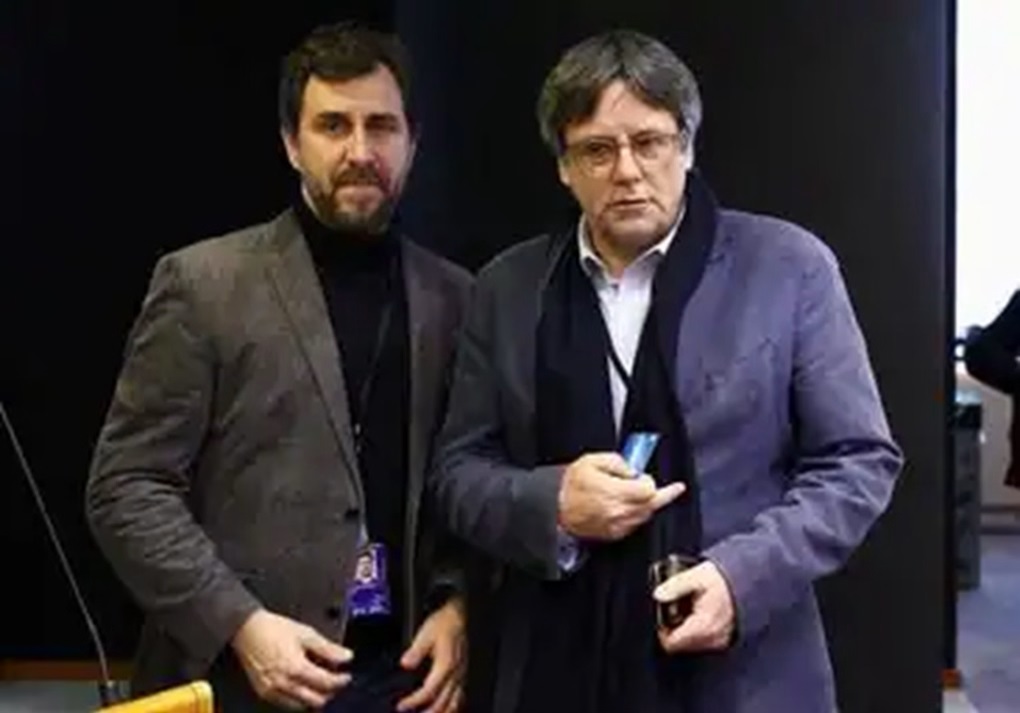International
Spain: PSOE bends to Catalan independents. Amnesty and referendum in Catalonia, bullets to the co-founder of conservative party Vox

The PSOE and Junts reached an agreement to facilitate the investiture of Pedro Sánchez that also guarantees the’stability of the legislature’ provided there is progress in negotiations between the two parties. The joint document strives to limit the differences between the two parties in order to open, on this basis, a negotiation space in which there will be an international verification mechanism, thus overcoming Spanish sovereignty. In which “the limits of self-government and those related to the national recognition of Catalonia” will be addressed as “contents to be negotiated”, paving the way for a further devolution of powers to the region and even an independentist refendum.
The agreement provides for an amnesty law ‘to guarantee full political, institutional, and social normality as an essential requirement to face the challenges of the immediate future’. The agreement makes clear that this law will include ‘both those responsible and citizens who, before and after the 2014 consultation and the 2017 referendum, were subject to decisions or judicial processes related to these events’. In his press conference from Brussels, Santos Cedán clarified that it will cover the period from 2012 to the present. So Junts MEPs in exile in Brussels for organising the Catalan referendum in 2014 will be able to return home.
The agreement provides for the creation of commissions of inquiry during the next legislature, whose conclusions ‘will be taken into account in the application of the amnesty law’. The problem is that the PSOE had pledged not to grant any amnesty for the events of 2017, i.e. the independence referendum, so the commission is nothing more than a means to save face.
In this negotiating forum, Junts will propose to hold a referendum on self-determination ‘on the political future of Catalonia protected by Article 92 of the Constitution’, while the PSOE will support the evolution of the path of autonomy established in 2006. However, since the presence of Junts is necessary for the government, this Catalan independence political force will have a good game in pushing for an independence path, despite the fact that the Spanish constitutional court has defined these demands as illegitimate in the past.
The agreement, the parties say, will open ‘a new stage and contribute to resolving the historical conflict over the political future of Catalonia’. The parties believe that ‘an important part of Catalan society has made a great mobilisation in favour of independence in recent years’, a period they call a response to the Constitutional Court’s 2010 ruling, imputing the PP’s point appeal to this.
The document recalls that this statute aimed at ‘the recognition of Catalonia as a nation as a solution to the limits of self-government and accumulated deficits’. Some claims to which they attribute ‘a profound historical path and which have taken on different forms since the New Plant Decrees abolished the constitutions and secular institutions of Catalonia’. That is, the PSOE subscribes to a document that dates back to 1714, the fundamental nucleus of independence mythology, and starts from the assumption that since then “a significant part of Catalan society has no longer felt identified with the political system in force in Spain”.
The parties focus on expressing their ‘profound divergences’ between the parties. And although the socialists have celebrated all the steps taken so far, including the pardon, they now accept that the central issue remains unresolved. The parties say they are ready to ‘open a new phase’ in which ‘a political and negotiated solution to the conflict will be sought’. On the basis of the results of the polls, PSOE and Junts commit themselves to open negotiations to seek a series of pacts that ‘contribute to resolving the historic conflict over the political future of Catalonia’. Agreements that, they already anticipate,’must respond to the demands of the majority of the Parliament of Catalonia’.
It is based on the recognition that PSOE and Junts make of ‘their profound discrepancies’ and are aware of ‘the complexity and obstacles of the process they are preparing to undertake’. On the one hand, Junts considers the result and mandate of the 1 October referendum, as well as the 27 October 2017 declaration of independence, to be legitimate. On the other hand, the PSOE denies the referendum any legitimacy, validity, or declaration and maintains its rejection of any unilateral action. And this is where both sides believe it is possible to’reach important agreements without giving up their respective positions’. However, despite this, they agreed to govern together.
In the end, as far as the future of Catalonia is concerned, the two sides agree mainly, or almost exclusively, on blaming the problems of three centuries of disagreement on the Partido Popular, which now remains outside the government despite having emerged victorious in the last elections. The PSOE is too enamoured of power to understand the damage that a government with Junts independentists can do to Spain. At the same time Junts manages to clear its leadership of any criminal charges for the illegal independence referendum in 2017 and is able to continue with its propaganda. A step towards the implosion of Spain

Meanwhile, however, the co-founder of conservative and unionist party VOX, former leader of the Partido Popular in Catalonia as well as former Vice-President of the European Parliament, Alejo Vidal, is shot in Madrid. Hit in the face, he is now seriously wounded in the hospital, while the suspected terrorist escaped on a motorcycle.
A coincidence that it happens on the day when Junts and PSOE come to an agreement? Surely yes, but remember what happened after the violent death of José Calvo Sotelo.






